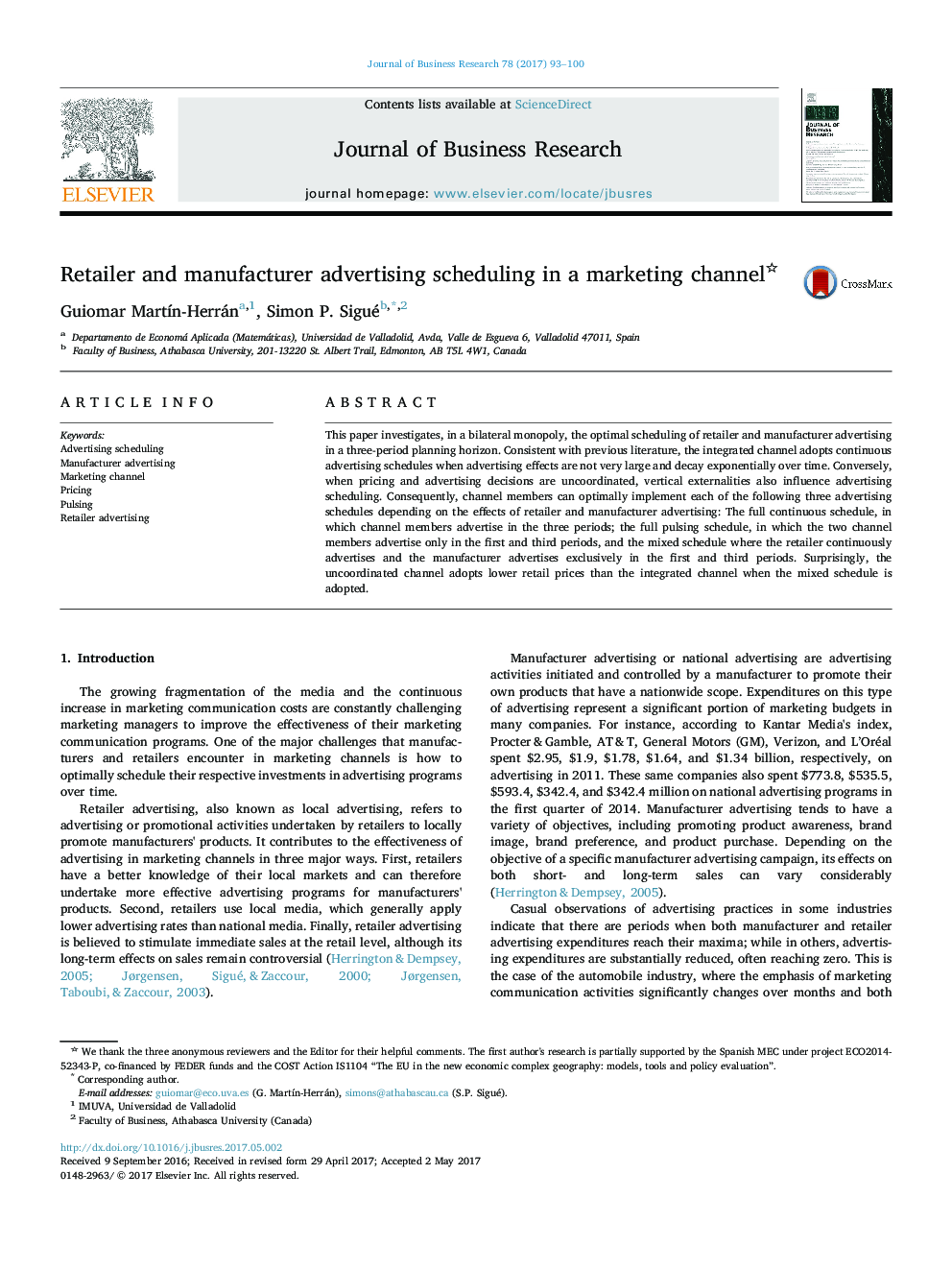| Article ID | Journal | Published Year | Pages | File Type |
|---|---|---|---|---|
| 5109589 | Journal of Business Research | 2017 | 8 Pages |
Abstract
This paper investigates, in a bilateral monopoly, the optimal scheduling of retailer and manufacturer advertising in a three-period planning horizon. Consistent with previous literature, the integrated channel adopts continuous advertising schedules when advertising effects are not very large and decay exponentially over time. Conversely, when pricing and advertising decisions are uncoordinated, vertical externalities also influence advertising scheduling. Consequently, channel members can optimally implement each of the following three advertising schedules depending on the effects of retailer and manufacturer advertising: The full continuous schedule, in which channel members advertise in the three periods; the full pulsing schedule, in which the two channel members advertise only in the first and third periods, and the mixed schedule where the retailer continuously advertises and the manufacturer advertises exclusively in the first and third periods. Surprisingly, the uncoordinated channel adopts lower retail prices than the integrated channel when the mixed schedule is adopted.
Keywords
Related Topics
Social Sciences and Humanities
Business, Management and Accounting
Business and International Management
Authors
Guiomar MartÃn-Herrán, Simon P. Sigué,
